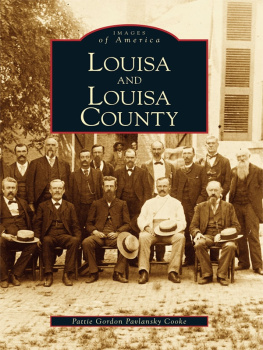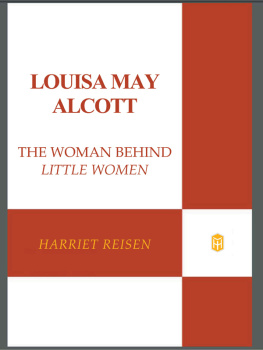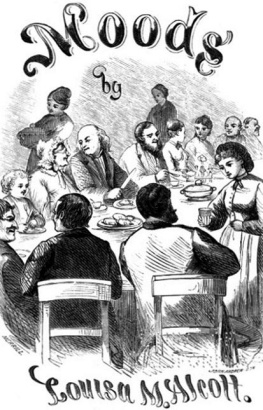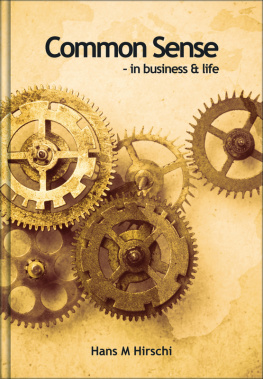Liberty Pamphlets.
In the Press.
Socialism in Danger. Part II. By E. DOMELA NIEUWENHUIS. Translated by R. Grierson .
Parliamentary Politics in the Socialist Movement. By ERRICO MALATESTA.
16 pp., 8vo., printed on toned paper, Price One Penny .
Jones Boy: Dialogues on Social Questions Between an Enfant Terrible and his Father. By Spokeshave.
Liberty Lyrics, By L. S. BEVINGTON.
The Ideal and Youth. By ELISE RECLUS.
An Anarchist on Anarchy, By ELISE RECLUS.
In Defence of Emma Goldmann and the Right of Expropriation. By VOLTAIRINE DE CLEYRE.
First Series.
The Why I Ams: Why I Am a Socialist and an Atheist, by Conrad Naewiger; Why I Am a Social Democrat, by G. Bernard Shaw; Why I Am an Individualist Anarchist, by J. Armsden.
Second Series.
The Why I Ams: Why I Am a Communist, by William Morris; Why I Am an Expropriationist, by L. S. Bevington.
Common-Sense Country.
There was a country where Common-sense had somehow got the upper hand. In that country sense was as common as lunacy is in a madhouse. There was a place for everything, and everything was either in that place, or else was on the direct way therethe shortest way, the easiest way, the cheapest way. In that country everybody was brought up with the notion that the simplest plan in everything served everybodys turn best, even the clever peoples; and it was taken as a matter of course that if things did not go wrong people wouldnt. They read in their books of history and comparative sociology that in countries were things do go wrong, people go wrong too, in the blind, blundering attempt to straighten things back a bit. But in Common-sense Country it was always said when things went wrong that there had been some nonsensethat is, empty word-playin the heads or habits of the people, which had diverted attention from realities, and caused the people to let things wander out of the way.
In Common-sense Country all the commodities and goods, all the instruments, utensils, and appliancesin short, all the thingshad very simple and unadventurous biographies, and, if they could have spoken, they would not have had much harrowing information to impart about the ravages of their tissues and textures caused by moth and rust, nor yet of vicissitudes incurred at the hands of thieves breaking through to steal. I was needed: I was made: I was conveyed: I was applied: I was consumed. That would have summed up the history of a thing in the country where things went right: only five short chapters. In most countries, of course, all sorts of distressing and distracting other chapters intervene. Thus: I was coveted: I was done without: I was lied for: I was hated for: I was speculated in: I was adulterated: I was advertised. I was legislated about: I was sold (and my buyer with me): I was squandered: I was hoarded: I was quarrelled over: I was fought for: I was burgled: I was bombed.
-ooo-
In Common-sense Country there was a job for everyone, and everyone was merrily, ardently, or placidly doing that job. No one was doing mere business and calling it work. No one was doing real work and feeling it toil. Dull jobs were done in short spells by an immense number of people; delightful jobs were worked at for the pleasure of the thing, in longer spells, and by a fewer number of people. It fell out so, naturally, and because of common sense; nobody had to be at the trouble of enforcing the arrangement. The man with the dullest or most fatiguing job, as a matter of course, got the longest leisure for re-creation of his naturally flagging zest for the job. The man with the pleasurable and healthy job hardly knew leisure from job. The kindliest and most able-bodied and jolliest of the people had common-sense reasons for attending to the least appetizing tasks. Everybody knew they wanted doing; and these kindly, vigorous, and jolly folks were those who cared most about getting them done, and cared least about minor disagreeables. They also liked the peculiar way in which other people shook hands with them for it, and more than made it good to them in the way of respect and hospitality wherever they went.
You never saw any feet without shoes in cold weather in Common-sense Country. And you never saw any shoes heaped up thousands thick in warehouses with no feet to put into them. Common-sense citizens had grave objections, not only to cold, discomfort, and disease, but also grave objections to the enormous expense of thought, time, material, and goodwill, necessarily involved in any and every measure for keeping empty shoes warm indoors, and human feet cold outside in the street. You never came to a place in any Common-sense city where, by turning your head to the right, you could see one horn of a dilemma in the shape of a lot of grain or fish being destroyed on the lunatic excuse that it could not be sold for more than it cost, while by turning your head to the left the other horn of the dilemma became visible in the shape of men and women (with their children) hungry, worried, and constantly at their wits end, only because they could not buy back the comestibles they had ploughed, reaped, milled, fished, and otherwise laboured to bring within human reach.
-ooo-
In Common-sense Country there were no jerry built houses, because people could not see any reason for making insecure and unhealthy dwellings. There were no ground landlords to make it disadvantageous to any builder to build honestly; no builders so hard pressed, therefore, that they were obliged to cause the masons to scamp work, use limeless mortar, or unseasoned wood. No builder or mason, moreover, had (in the name of common-sense) any object whatever in view so immediately as the supplying of buildings wanted for use. He built houses for bakers, clothiers, artists, and all sorts of other useful persons; and these lived in the houses and produced food, clothing, works of art, and all sorts of other useful things for the builder in exchange.
There was no waste of any energy or of any talent in Common-sense Country. There were no churches and temples made with hands; because hands had better things to do than build prisons to shut up souls in. Also because in strict common sense the sky was holy enough to sit under, and even to sing spiritual songs under. Besides, Common-senseites had discovered that you could not get the sun and fixed stars and all their lesser lights into the biggest of temples ever made with hands. In Common-sense Country people liked daylight for their minds and morals as well as for their bodies; and found it cheapest in the long run.
-ooo-
There were next to no shipwrecks on the coasts of Common-sense Country; no one raced any ships to port in all weathers for the nonsensical reason of getting in before other ships. People on shore could always afford to wait a day or so for the weather, better than they could afford to kill men, sink ships, and spoil cargoes through running amuck at natures meteorological arrangements. It did not matter a jot to any one which ship got in first, since all ships were full of supplies, and sure to drop in, in natural order, as fast as needed. What sense of hurry there was, founded of course on experience of the inconvenience of waiting, led to all possible improvements in the art and science of ship-building and engine-building, so that wind-and-wave difficulties had been reduced to a minimum. So there was no colliding in fogs, no bursting of boilers, no over-lading, and no un-seaworthy craft; also no Lloyds agencies, to speculate on anyones want of common-sense, and to live as parasites on the low moral vitality of the public, making profit at its expense. When folk talked of insuring in that country, they always meant making as sure as possible against chances of mishap. To insure a ship was to build her well, fit her well, man her well, to steer clear of shoals, and keep her in sound repair. Likewise with the insurance of houses. And to insure your life, you had only to eat, drink, and clothe yourself on hygienic principles, to avoid the indolence or the over-taxing of any of your faculties, and to act fairly by every one of your fellow-creatures with whom you had to do. In common-sense language, insuring your life or property never meant to make it worth anyones while to destroy either one or the other.













